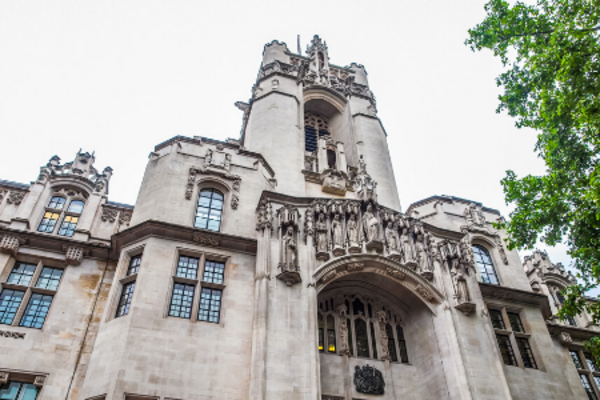BID is pleased that the Supreme Court has found in favour of the appellant in the case of Majera [2021] UKSC 46 (formerly SM (Rwanda). In this rather remarkable case, the Home Office, having decided to ignore and replace a grant of bail issued by the court, had to be reminded that it is required to obey court orders. This adds to the growing concern that the department has become a law unto itself. BID intervened in the case, with submissions which the Supreme Court ‘found to be of assistance’ (28).
To summarise briefly, the First-tier Tribunal had granted Mr Majera bail without a restriction on him being able to take up voluntary employment. The Home Office had then reversed this decision and it rejected repeated submissions by Mr Majera’s representatives at Birnberg Pierce solicitors to have this restriction lifted, or in the alternative, to return to the Tribunal to seek an amendment to its original order granting bail so as to impose this restriction.
Despite requests by the solicitors and indeed an invitation by the Upper Tribunal, the Home Office refused to return to the First-tier Tribunal to ask it to amend its decision, arguing that as the original decision of the court was incorrectly issued, it was invalid and the Home Office was therefore entitled to issue its own decision in its place.
The Supreme Court stated that the Government’s position ‘risked administrative chaos’ and exposing ‘innocent third parties to legal liabilities. It pointed to a number of precedents and affirmed that that the Rule of Law required parties challenging the validity of a court decision to return to the court that had issued its order to have it amended or reversed. This applied no matter if it was arguable that a court order was invalid, void or a nullity:
“It is a well established principle of our constitutional law that a court order must be obeyed unless and until it has been set aside or varied by the court (or, conceivably, overruled by legislation). (44)”
The SC judgment quoted the Lord Chancellor, Lord Cottenham in the case of Chuck v Cremer where he stated:
“[…] It would be most dangerous to hold that the suitors, or their solicitors, could themselves judge whether an order was null or valid - whether it was regular or irregular. […] That the course of a party knowing of an order, which was null or irregular, and who might be affected by it, was plain. He should apply to the Court that it might be discharged. As long as it existed it must not be disobeyed.” (44)
Pierre Makhlouf, BID Legal Director, said:
“It is quite extraordinary that the Home Office effectively tried to argue that it could replace the court’s order with its own decision, regardless of the legal consequences, both constitutionally or for the the individual concerned. The logic of the Home Office’s argument would have meant that until it had issued the appellant with its own decision he was unlawfully at large through no fault of his own. It would also have meant that the Home Office could replace any court order where in its view a decision was wrongly issued, and indeed it would have opened up a pandora’s box for allowing any party to ignore a judicial decision whose validity was being challenged.”
“The position of the Home Office is even more worrying as it attempted to prevent a man from carrying out voluntary work even though such work had proven beneficial to his rehabilitation. This approach is certainly not in the public interest and places the welfare of the public at large, and of the individual concerned at risk.”
“The fact that the Government then turned this approach, which forms part of its hostile environment agenda into a challenge to the normal requirements of the Rule of Law, shows the extent to which it now seeks to side-step the courts and the Law to pursue its political agenda.”
BID wishes to thank its excellent pro bono team of lawyers, all of whom provided their services on a pro bono basis. They include Raza Husain QC (Matrix Chambers), Laura Dubinsky (Doughty Street Chambers), Shane Sibbel (Blackstone Chambers), and Andrew Lidbetter, Lara Nassif and Antonia Smith of Herbert Smith Freehills solicitors.









